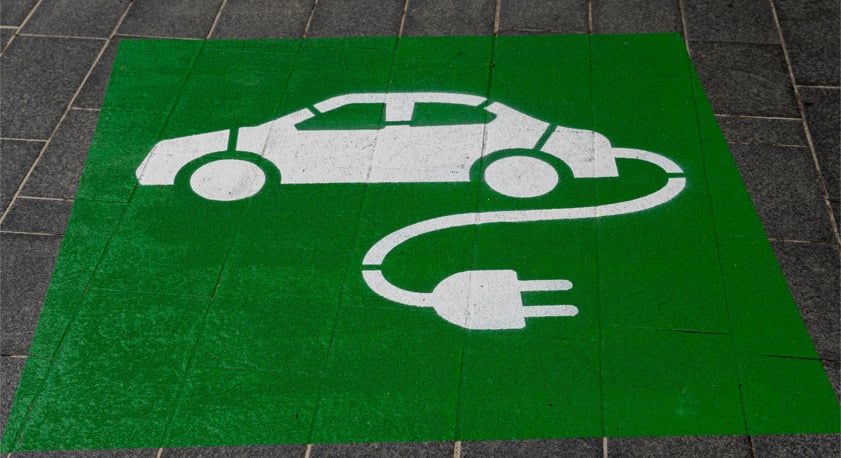
Eco-friendly vehicle technology is transforming the way we drive in the UK. From electric cars to hydrogen-powered vehicles, the industry is racing toward a greener future.
With government incentives, stricter emissions targets, and rapid advancements in automotive tech, choosing an eco-friendly car has never been more appealing.
But what exactly are these innovations, and how will they affect the cars you drive in the coming years?
In this blog, we’ll explore the ground breaking technologies shaping the UK automotive industry, why they matter, and how they could change the way you get behind the wheel. We discuss:
The shift towards sustainable manufacturing in the automotive industry isn’t happening by chance. It’s being fuelled by a mix of regulation, consumer demand, and environmental urgency.
Tougher government regulations on emissions are pushing carmakers to innovate and cut their carbon footprint. At the same time, drivers are becoming more eco-conscious, choosing vehicles that align with their values and expectations for a cleaner future. And, with climate change looming as a global challenge, manufacturers are taking action by adopting greener practices throughout the entire vehicle lifecycle, from the materials they use to how cars are produced, delivered, and recycled.
This combination of factors is reshaping the industry and setting the stage for a more sustainable road ahead.
The UK automotive industry is undergoing a green revolution, with innovations reshaping how cars are designed, built, and powered. These breakthroughs are not only helping manufacturers meet stricter environmental standards but also paving the way for a cleaner driving future.
- Renewable Energy in Production - Manufacturers are increasingly powering their plants with renewable energy sources like wind, solar, and hydropower. This shift dramatically cuts the carbon footprint of car production and supports the global push towards carbon neutrality.
- Eco-Friendly Materials - The use of sustainable materials is on the rise. Recycled plastics, bio-based fibres, and lightweight composites are replacing traditional petroleum-based components. These materials reduce reliance on fossil fuels, improve vehicle recyclability, and often enhance performance.
- Advancements in Battery Technology - With electric vehicles leading the charge, battery innovation has become a priority. UK researchers are developing more efficient, longer-lasting batteries that are easier to recycle. This not only lowers emissions but also makes EVs more sustainable throughout their lifecycle.
- Lean Manufacturing - By embracing lean manufacturing, carmakers are cutting waste and streamlining production. Optimised processes mean fewer materials used, more components recycled, and improved efficiency. These savings can even help make eco-friendly cars more affordable for drivers.
“From hybrids to hydrogen fuel cells, embracing eco-friendly vehicle technology supports cleaner air, reduced emissions, and aligns with the UK's Net Zero targets.”

While the push toward greener automotive manufacturing is gathering momentum, the road to full sustainability is far from smooth. The industry faces a series of technological, economic, and infrastructural challenges that must be addressed to keep progress on track.
- Technological Hurdles - Advances in sustainable materials, battery innovation, and renewable energy integration are impressive, but they still face hurdles. Scaling up eco-friendly materials without compromising performance remains a major task. Likewise, developing batteries with longer lifespans and faster charging capabilities continues to be a critical challenge for manufacturers.
- Economic Factors - Going green isn’t cheap. High upfront costs, both for manufacturers investing in new technologies and consumers considering eco-friendly vehicles, can slow adoption. On top of that, the fluctuating price and availability of raw materials for batteries and other components add uncertainty, making the transition more complex.
- Infrastructure Limitations - The growth of electric vehicles hinges on a robust charging network, yet many regions still lack the infrastructure needed to support widespread EV adoption. Limited access to convenient charging stations can deter drivers from making the switch to electric, creating a barrier to progress.
Overcoming the Obstacles
Despite these challenges, the industry is finding solutions through innovation, investment, and collaboration.
- Governments are supporting change with policies, incentives, and subsidies.
- Manufacturers are investing heavily in research and development to overcome technical barriers.
- Public-private partnerships are driving the rollout of EV charging infrastructure, making sustainable driving more accessible.

The future of sustainable automotive manufacturing is full of potential, with groundbreaking research and emerging technologies set to transform how cars are built, powered, and integrated into our energy systems. These innovations promise to reduce environmental impact even further while reshaping the driving experience.
- Advancements in Material Science - Research into next-generation materials is paving the way for lighter, stronger, and more sustainable cars. Biodegradable composites, advanced recycling methods for metals and plastics, and ultra-lightweight materials are expected to enhance efficiency without sacrificing safety or performance.
- Energy Storage Breakthroughs - The race for better batteries continues to heat up. Solid-state batteries, lithium-sulphur technology, and hydrogen fuel cells are at the forefront, promising greater energy density, faster charging, and easier recycling. These advancements could deliver longer ranges and quicker refuelling than today’s lithium-ion solutions, making EVs even more practical.
- Vehicle Design & Manufacturing Processes - Future cars are likely to feature modular designs, making repairs and upgrades simpler and more sustainable. Advanced manufacturing methods like 3D printing will cut waste, lower energy consumption, and enable more customised, efficient production.
- Intelligent and Autonomous Vehicles - The rise of AI and autonomous driving technology brings environmental benefits as well. Smarter vehicles can optimise driving patterns, reduce congestion, and improve traffic flow, resulting in fewer emissions and more efficient use of energy.
- Renewable Energy Integration - Cars of the future won’t just consume energy, they’ll help manage it. Technologies like vehicle-to-grid (V2G) allow electric vehicles to store surplus renewable power and return it to the grid when needed, turning EVs into mobile energy storage units.
Leasing tip:
Electric and hybrid vehicles are evolving rapidly. By leasing, you can switch to newer models with cutting-edge batteries and features as they hit the market, keeping your drive efficient and sustainable.
With innovation accelerating, the path to greener automotive manufacturing is becoming clearer. The collaboration between governments, businesses, and researchers is key to overcoming obstacles and driving these technologies forward.
The UK automotive industry is already setting a high standard, showing how environmental responsibility and cutting-edge innovation can go hand in hand. As the sector continues to evolve, it’s not just adapting to a sustainable future, it’s helping to create it.
Ready to drive the future?
Discover our latest eco-friendly car leasing deals and get behind the wheel of cutting-edge technology without the hefty upfront cost.
Originally posted: 5th April 2024
Last updated: 17th July 2025

